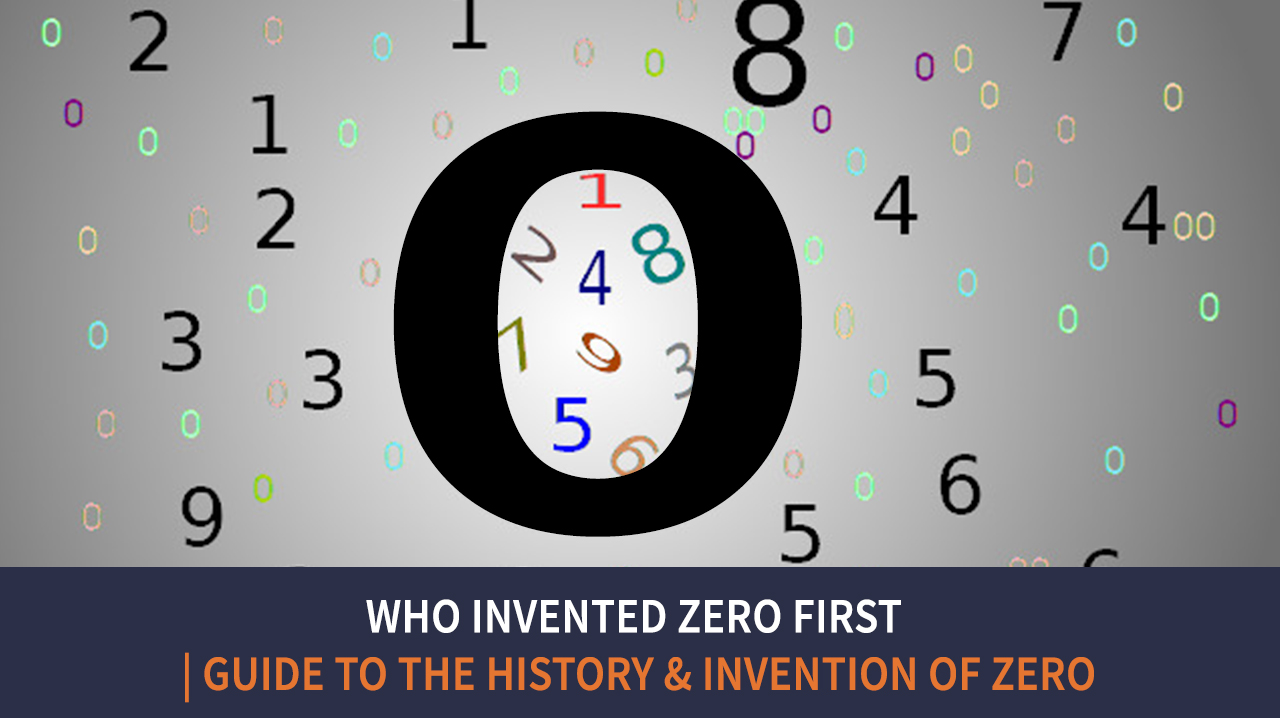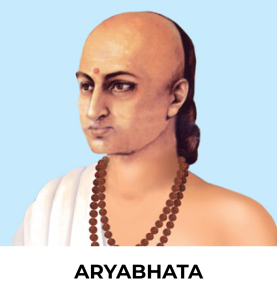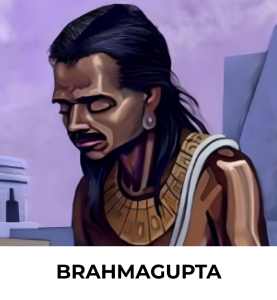Who Invented Zero First | Guide to the History & Invention of Zero

Can you even imagine a world without zero? From the computer systems that power our daily routines to the bank balances that dictate our financial decisions, Zero, a seemingly simple mathematical concept, is one of the most significant discoveries in human history. Today, it’s hard to imagine mathematics without zero, but it was not always the case. The concept of zero had a long and intricate journey before it became an essential element of modern-day mathematics. In this blog post, we will explore the history and discovery of zero, discussing the people and cultures that played a pivotal role in its creation.
Who Invented Zero First? Major Things You Need to Know about the Invention of Zero
The origin of zero has long been shrouded in mystery, as multiple ancient civilisations have vied for credit. Was it the Indians, Babylonians, or Mayans who first grasped the concept of nothingness? The controversy continues to this day, sparking endless debates and speculation. Nonetheless, the enduring significance of zero cannot be denied, as it underpins countless fields of study and technological advancements.
Who Discovered Zero: Let’s Find The Answer Together
While the exact identity of the person who discovered zero remains a mystery, it is believed that the concept was developed independently by different civilisations around the world. The Babylonians, Mayans, and Indians all had their version of zero. However, it was the Indians who developed the concept into a full-fledged number.
Here’s the Real Story Behind Who Found Zero


The concept of zero originated in ancient India as a placeholder in numerical notation. The role of Aryabhatta and Brahmagupta in the discovery of zero has been debated for a long, but now it is believed that both made significant contributions. Aryabhatta invented the decimal system and used zero as a placeholder, while Brahmagupta developed the rules for arithmetic operations with zero and negative numbers. Their work has profoundly impacted mathematics and science.
Indian mathematicians further advanced the concept of zero, refining its meaning and applications. They recognised zero as a numeral and developed explicit rules for arithmetic operations with zero, as evident from ancient texts like Brahmasphutasiddhanta, dating back to the 7th century. This demonstrates the deep understanding and contribution of Indian mathematicians to the development of zero, which continued to gain prominence in the mathematical landscape of ancient India.
Also Read
Origin of Zero
Early number systems like the Roman numerals lacked a symbol for zero, making certain calculations difficult. Fortunately, ancient civilisations such as the Babylonians, who used a tiny wedge, and the Mayans, who used a shell, realised the need for a placeholder to represent zero. The Babylonians used a sexagesimal (base-60) number system with a placeholder symbol to represent a space. The Mayans also had a placeholder symbol for zero. However, it was in ancient India that zero truly found its home. Indian mathematicians recognised zero as a vital numeral and developed rules for arithmetic involving zero, unlocking doors to sophisticated calculations.
History of Zero
In ancient India, zero was represented by a dot, which later evolved into a circle and then into the “0” symbol we know today. The Islamic Golden Age saw the adoption of the Indian numeral system and recognition of the significance of zero, leading to its spread throughout Europe. Zero became fundamental in advanced mathematical fields, including calculus and algebra. Its use in scientific discoveries and technological innovations, such as calculating the speed of light and designing computer algorithms, has made it a cornerstone of modern mathematics and science.
Importance of understanding the invention of zero – Why Students Need to Learn About Zero
Understanding the invention of zero is like discovering a key to unlock a treasure trove of mathematical possibilities. It revolutionised problem-solving, enabling more accurate calculations and complex operations.
Zero isn’t just abstract; it has practical uses in everyday life as well. From measuring temperatures to managing finances, zero is essential for accurate representation and manipulation of numerical information, enhancing efficiency. Moreover, Zero’s invention profoundly impacted cultural and intellectual history. It symbolises humanity’s thirst for knowledge, the evolution of civilisations, and the interconnectedness of cultures. Learning about Zero’s history fosters respect, curiosity, and appreciation for our shared human heritage while fuelling advancements in mathematics, science, and beyond.
Zero’s discovery showcases the significance of collaboration and cultural exchange in human progress. Let’s remember the contributions of different civilisations that have shaped our world, and appreciate the rich history behind the number zero every time we use it.
Join our international boarding school in Pune to explore more intriguing topics and to develop your knowledge and skills across various subjects. As one of the best residential schools in Maharashtra, we provide a nurturing environment for intellectual growth and cultural appreciation. Enrol today to embark on a journey of enrichment and discovery.
FAQs
Yes, zero was invented by an Indian mathematician, Aryabhata.
Ancient Indian mathematicians introduced the concept of zero, but the specific originator is unknown.
Zero was first used as a number around the 5th century CE.
The Indian scholar Brahmagupta introduced zero to the Western world.


